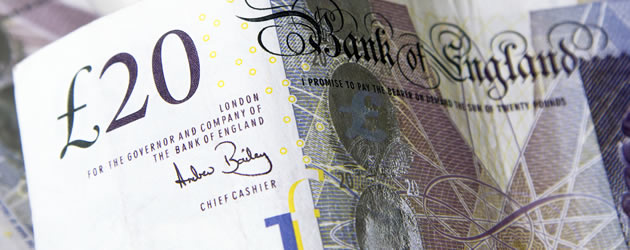The Pound Sterling to Euro (GBP/EUR) exchange rate has failed to sustain any growth due to mounting pressure on Sterling, with yesterday’s higher-than-expected UK Services PMI release having little positive impact.
UK Prime Minister David Cameron Defends Integrity Amid #PanamaPapers Allegations
The ‘Panama Papers’ scandal looks set to rumble on after an increasingly large list of the political elite have been namedropped among the leaked documents from a Panama law-firm.
The historic leak contains documents detailing various accounts of tax evasion and money laundering from the last 40 years and has affected various locations in Europe, and further afield, with its political implications.
David Cameron’s late father, Ian Cameron, is one of the names discovered to have used ‘tax havens’ to hide a large amount of wealth.
After Labour Leader Jeremy Corbyn publically announced that clarification should be made on the tax state of Cameron’s family, the Prime Minister responded by saying he did not own any offshore funds of any kind.
The GBP/EUR pair has been fluctuating fairly unpredictably since the leak was sprung this week, but during Tuesday’s session the Pound dropped to its lowest point since June 2014. At the time of writing, the pair was trending around a low of 1.2441.
Analysts had tipped the Pound to strengthen and potentially rebound in response to Tuesday’s positive UK services PMI. The monthly print’s March score was an impressive 53.7, beating out forecasts of 53.5.
As Britain’s strongest sector, the news was expected to be influential. However, global political tides have seen the figure mostly ignored.
Weak Eurozone Data Unable to Help Sterling (GBP) Stay Buoyant
Despite last week’s CPI releases showing promise that the Eurozone economy could be crawling closer to its inflation targets, data released yesterday paints a less optimistic story.
A slew of PMI releases for Germany, Italy, France and the general Eurozone printed almost entirely below forecasts. The Eurozone’s final March composite PMI print was expected to maintain a score of 53.7 but instead drooped to 53.1.
German factory orders also released far lower than forecast. While the year-on-year print was still up from the previous month’s 0.4%, it only increased to 0.5%, well below forecasts of 2.2%.
Potentially illustrating to investors that the Eurozone was not performing as well as hoped, the Euro still weighed on the Pound.
This is perhaps in part due to positive Eurozone retail sales data, with year-on-year data scoring 2.4% over the previous month’s 2.0% and forecasts of 1.9%.
Pound Sterling to Euro Exchange Rate Forecast: GBP/EUR Approaches Two-Year Low
Though both currencies in the pair are comparatively weak, Sterling is certainly the weaker of the two and the GBP/EUR has room to fall further.
The UK’s steel crisis has been unfortunately sidelined while the ‘Panama Papers’ scandal takes centre stage, but is certain to have a negative effect on the Pound if solutions are not found.
‘Brexit’-based weakness is also likely to continue until the EU referendum in June. Standard & Poor’s credit rating agency have suggested that Britain’s reliable AAA credit rating could even be downgraded in the event of a ‘Brexit’, a move that could deal severe damage to the Pound.
While UK data remains quiet from now until the end of the week, Eurozone retail PMI is due for release later this morning.
Following Tuesday’s disappointing PMI figures from across the Eurozone, these figures may also print negatively. However, more positive scores could make the shared currency even stronger against the struggling Pound.



